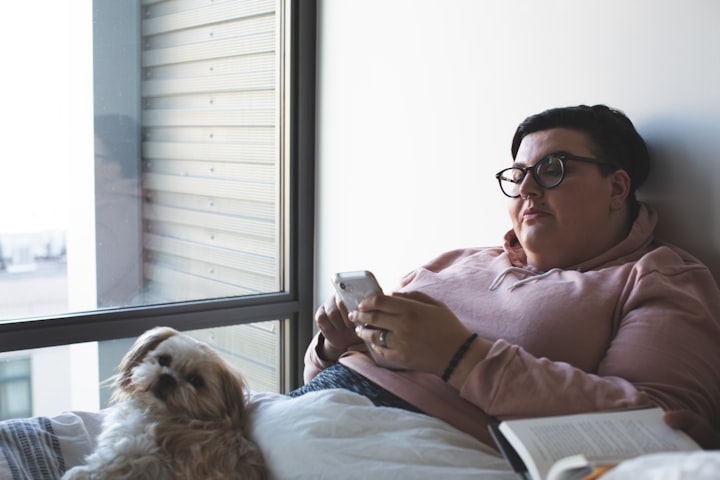
Poor sleepers are bound to suffer from a hundred diseases! What is poor sleep quality? Overall, it can be divided into three main categories.
1. difficulty in falling asleep
--The main manifestation is unable to sleep, tossing and turning, and more and more mental
2. Decreased quality of sleep
--After waking up, you do not feel refreshed, but are still tired
3. Decreased sleep time
--Shallow sleep, wake up at any time, wake up and can not sleep
How important is sleep? Let's do a simple arithmetic problem, if we calculate the life expectancy of 80 years old, 8 hours of sleep per day, people need to sleep 233,600 hours in a lifetime, about 27 years!
After this epidemic, sleep should not be neglected even more. After all, sleep will be directly linked to one's immunity! For people with strong immunity, the virus is not much of a threat and can be carried over quickly; but for people with poor immunity, the virus can easily cause heavy infections and even death.
Scientific research shows that the quality of sleep is directly and positively correlated with the level of immunity. A team of researchers led by Professor Cohen from Carnegie Mellon University in the United States found that even a slight disturbance in sleep may affect the body's weakened response to fight cold and flu viruses.
Dr. StoyanDimitrov and his team from the University of Tingeing in Germany found through their research that chronic sleep deprivation can affect normal immune function and even lead to a collapse of the immune system.
By testing blood specimens from experimental volunteers, the researchers found that a few hours of sleep loss can significantly reduce the efficiency of T-cell work. In contrast, immune cell T cells from normal sleepers bind best to targets that need to be cleared and become more immune potent as they sleep deeper, and reach their highest value at 6 a.m.
It has also been confirmed that either form of sleep disturbance activates inflammatory signaling pathways, bringing about a mild inflammatory response the next day, which explains why you get acne after a late night.

In addition, chronic poor sleep quality and sleep deprivation not only directly reduces the body's immunity but also lead to a series of serious hazards.
0 1
Increase the risk of disease
Scientific studies have shown that chronic insomnia leads to a risk group for the development of mental disorders four times higher than the general population! Long-term sleep disorders can lead to chronic fatigue syndrome, hypertension, coronary heart disease, atherosclerosis, diabetes, cerebrovascular disease, and other diseases.
Sleep deprivation increases the risk of developing diabetes. The results of a mouse-based study were published in the American Journal of Physiology-Endocrinology and Metabolism. The findings suggest that insomnia may affect the liver's diminished ability to metabolize glucose and process insulin.
0 2
Increased psycho-psychiatric disorders
The National Institute of Mental Health found that sleep disturbances are an underlying symptom of almost every mental illness and that when a person has a psychiatric illness, the likelihood of insomnia is also higher. It is estimated that nearly half of all insomnia sufferers are accompanied by psychiatric disorders, most commonly such as anxiety and depression. One study found that people with insomnia were six times more likely to suffer from major depression, a significant risk factor for suicide.
Image
0 3
Increased cancer disease
According to the book, with less than 5 hours of sleep at night, the body's immune Natural Killer cells, which are specialized to deal with cancer cells, will be reduced by 70%! Under a microscope, you can see how KN cells attack and destroy cancer cells.
There are mutated cells in every human body, the number is about 10,000, but they do not form tumors, because there are KN cells guarding the health of the body.
Scientists have compared mice with tumors and found that sleep-deprived mice had tumors that grew many times faster than similar mice with tumors! That's why the World Health Organization has identified sleep deprivation as a cancer-causing factor!
0 4
Sleep deprivation is more like torture
Sleep deprivation, once a common punishment, is even more damaging than not eating. Studies have found that if one does not sleep for 19 hours straight, one's mental and physical state is the same as drunkenness. Previously, the method used by police in many countries to force a confession without traces was: no sleep for the prisoner. More than 40 hours without sleep, basically let the prisoner sign whatever word, not for freedom, only for sleep.
This method is now considered torture and has been abandoned.
0 5
Staying up late really makes people fat
Fat, which is worse for beauty lovers than sick, lack of sleep is really easy to gain weight because lack of sleep reduces the satiety-related lepton Lepton: lepton (Lepton, LP) enters the blood circulation will be involved in the regulation of sugar, fat and energy metabolism, prompting the body to reduce food intake, increase energy release, inhibit the synthesis of fat cells, which in turn leads to weight loss.
Sleep deprivation raises hunger-related hunger hormone hireling: the hunger hormone which regulates appetite, eating, and body composition. This is why people who do not sleep well are more likely to be hungry.
0 6
Sleep deprivation not only makes you fat but also stupid
Because REM deficiency affects the health of brain cells, prone to Alzheimer's disease. Margaret Thatcher and President Reagan were both claiming that they only slept 4-5 hours a day and both got Alzheimer's disease.
This shows that getting a good night's sleep is no joke. Sleep is equivalent to system cleaning and optimization. Without the process of organism self-help finishing without the participation of subjective consciousness during sleep, biological functions will gradually become unbalanced and transform into a pathological state.
How much sleep is appropriate for the elderly?
Do not think that it is normal to sleep less when you are older, this is not true the elderly do not have a lot of need for sleep. The vast majority of older people, sleep less because of physiological and pathological reasons.
Possible reasons for this are
1. Older people sleep more lightly
The most recognized sleep theory by scientists from all over the world is that the human body has its own "sleep regulation function", and that human sleep behavior is influenced by two systems in the brain, the "sleep system, and the waking system". As we get older, deep sleep decreases, and corresponding light sleep increases. There is also a greater sensitivity to environmental factors around you during sleep. Even the slightest movement will cause them to wake up from light sleep. This repeatedly affects the total sleep time and sleep quality. In addition, there is a bad phenomenon a bad night's sleep, which will make up for it during the day, make up for a long time, the night sleepiness becomes less, into the vicious circle of "sleep less".
2. influenced by the biological clock, resulting in an early start
Another influence on sleep in the brain is the "circadian system", which is often referred to as the "biological clock". The body will make physiological and behavioral adjustments according to the local circadian pattern.
Body temperature, melanin, and cortisol are important factors that affect the "biological clock". The body will make physiological and behavioral adjustments according to the circadian changes in the environment. Some surveys have found that the rhythms of these three factors are about an hour earlier in older people than in younger people.
For example, the average young person's body temperature peaks at 10:00 p.m. and begins to drop as the body prepares for sleep. But an older person's body temperature will begin to drop at about 9:00 pm, or even earlier, and in the morning the body temperature will rise an hour earlier than a younger person.
The trend of melanin and cortisol is similar to that of body temperature.
Light is another factor that affects a person's circadian rhythm.
Some studies suggest that older people are more lacking in outdoor activities. And the degeneration of the eyes themselves also reduces the amount of light they receive, thus affecting their circadian rhythms.
3. The effect of disease
In reality, many elderly people are not in a healthy state. The impact on their sleep is more often due to illness. For example sleep disorders: insomnia, obstructive sleep neap, periodic limb twitching disorder; chronic pain and cardiovascular diseases; neurological diseases: Alzheimer's disease, Parkinson's, etc.
In short, less sleep for the elderly is not normal and not good for health, if it affects daily life during the day, then you must pay attention to it.
How much sleep is appropriate for each age group?
The American Sleep Genetics Research Institute always receives questions like "how long is the best time for people to sleep? Their recommended sleep time for each age group is as follows
Newborns from 0 to 3 months: 14 to 17 hours
Infants from 4 to 11 months: 12 to 15 hours
1 to 2 years old toddlers: 11 to 14 hours
Preschoolers aged 3 to 5 years: 10 to 13 hours
School-age children 6 to 13 years old: 9 to 11 hours
Adolescents aged 14 to 17: 8 to 10 hours
Adults aged 18 to 64: 7 to 9 hours
Seniors over 65 years of age: 7 to 8 hours
Compare, do you and your family meet the standard? Maybe some people feel more anxious after reading this that they have not slept enough ......
Sleep time is enough, on the one hand, sleep quality is also very important, the indicators are, here again, look at.
Falling asleep faster, within 30 minutes.
rarely wake up in the middle, or wake up for a very short time, no more than 5 minutes.
not staying in bed in the morning.
Having plenty of energy during the day.
Sun Jejune recently published in "Hydrogen Thinking
Can hydrogen improve sleep?
There is often feedback that inhaling hydrogen gas and drinking hydrogen water is very effective in improving sleep. But it is also often asked why hydrogen can improve the effect of sleep.
The reason why hydrogen improves sleep can be explained to some extent from the perspective of hydrogen's anti-inflammatory and antioxidant properties. There are some closely related studies related to hydrogen improving sleep.
A large number of studies have found that hydrogen has a preventive effect on various organ damage caused by sleep neap syndrome, and there are more studies in this area at the Hebei Institute of Chinese Medicine. Unfortunately, there are relatively few clinical studies in this area. Research in this area suggests that hydrogen reduces pathological damage in people who do not sleep well.
Hydrogen has an ameliorating effect on depressed animals, and there are studies in this area at the Hebei Medical University and the Second Military Medical University. Japanese scholars have also found that hydrogen water has an ameliorating effect on anxiety caused by work stress, and also improves sleep quality, and reduces the intensity of sympathetic excitation during sleep. Research in this area suggests that hydrogen can alleviate certain important causative diseases that may lead to insomnia.
Additional recent studies have found that sleep deprivation affects wakefulness in healthy individuals and that hydrogen water and coffee have similar effects on improving this condition. This study suggests that hydrogen has a mitigating effect on the lack of energy caused by insomnia. This effect also suggests that the long-term effects of hydrogen may be beneficial for more wakefulness during the day and better sleep at night.
In certain patients with serious illnesses, improved insomnia may be due to the overall manifestation of improved physical condition. In an observation conducted by President Chechen X on some cancer patients, hydrogen inhalation was found to improve sleep in 60% of the subjects. Because these are patients with advanced cancer, hydrogen may relieve the inflammatory response of the whole body due to cancer, allowing the patient's body to have a relatively large respite, and the improved sleep reflects the signal that hydrogen is improving the overall physical condition of cancer patients.
At present, many clues suggest that hydrogen is effective in improving sleep, and hydrogen has great bio safety, which is a sufficient basis in terms of safety for long-term use. The improvement of hydrogen on insomnia is not to be underestimated, and I wish you a good night's sleep!
About the Creator
Ufreleyi
Easy come, easy go.






Comments
There are no comments for this story
Be the first to respond and start the conversation.